Have you ever heard of the mysterious phenomenon called “cold volcanoes” at the bottom of the deep sea?
Unlike typical volcanic activity, these cold volcanoes release cool substances instead of hot lava.
This seemingly contradictory geological activity has caught the attention of scientists and urban legend enthusiasts alike.
Could the enigmatic energy of cold volcanoes and the story of their formation hold the key to unlocking Earth’s hidden secrets?
In this article, we delve into this mystery, exploring the untold truths cold volcanoes might reveal about our planet.
- The mechanism and uniqueness of cold volcanoes
- The scientific enigma behind the true nature of cold volcanoes
- The impact of this phenomenon on Earth and humanity
- Urban legend elements hidden within the story of cold volcanoes
What is a Cold Volcano? Its Overview and Discovery
A cold volcano, unlike traditional volcanoes, does not emit high-temperature magma or lava.
Instead, it releases cold liquids or gases containing methane and sulfur compounds.
This phenomenon is primarily observed in deep-sea environments, distinguishing it as a mysterious anomaly in volcanic activity.
What mechanisms of the Earth give rise to such a unique phenomenon?
The First Discovery in the Deep Sea and Its Background
The existence of cold volcanoes was first reported during the latter half of the 20th century when deep-sea exploration began advancing.
Scientists investigating the ocean floor noticed this peculiar geological phenomenon.
Unlike conventional volcanic activity, the behaviors observed were classified as a distinct occurrence known as cold volcanoes.
Behind its discovery lies humanity’s relentless curiosity to unravel the unknown parts of our planet.
The Deep-Sea Environment Where Methane Gas from Cold Volcanoes Emerges
Cold volcanoes operate in the extreme conditions of the deep sea.
These environments, characterized by high pressure and low temperatures, are challenging for most life forms to survive.
However, unique microorganisms thrive around cold volcanoes, forming their own ecosystems.
Ongoing research explores how this phenomenon relates to Earth’s evolution and the origins of life.
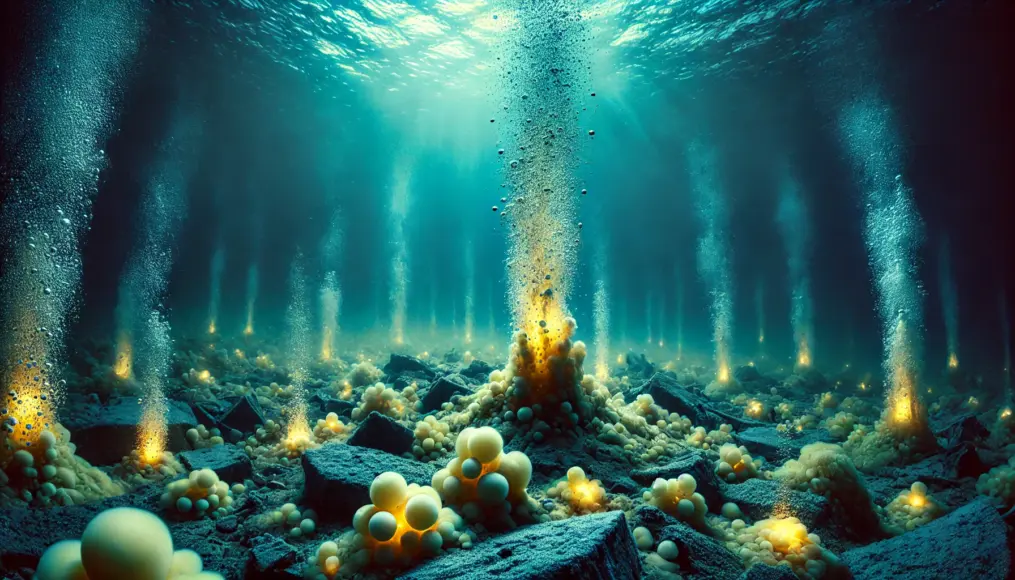
Why the Discovery Became a Subject of Urban Legends
The discovery of cold volcanoes has garnered scientific attention while also becoming a fascinating topic for urban legends.
Its unique nature and unresolved mysteries have added to the enigma of the deep sea.
For instance, some speculate that cold volcanoes might involve extraterrestrial activity.
Such rumors deepen the mystery of cold volcanoes, stimulating curiosity even further.
The Mystical Imagery Linking Deep-Sea Exploration to Urban Legends
When deep-sea exploration vehicles discovered cold volcanoes, the phenomenon astonished scientists.
Additionally, some speculated that this phenomenon might connect Earth’s geological structures to the universe.
Footage from these explorations showcased unique, glowing landscapes, captivating people’s imaginations.
These elements contribute to cold volcanoes being perceived as not just a natural phenomenon but also a component of urban legends.
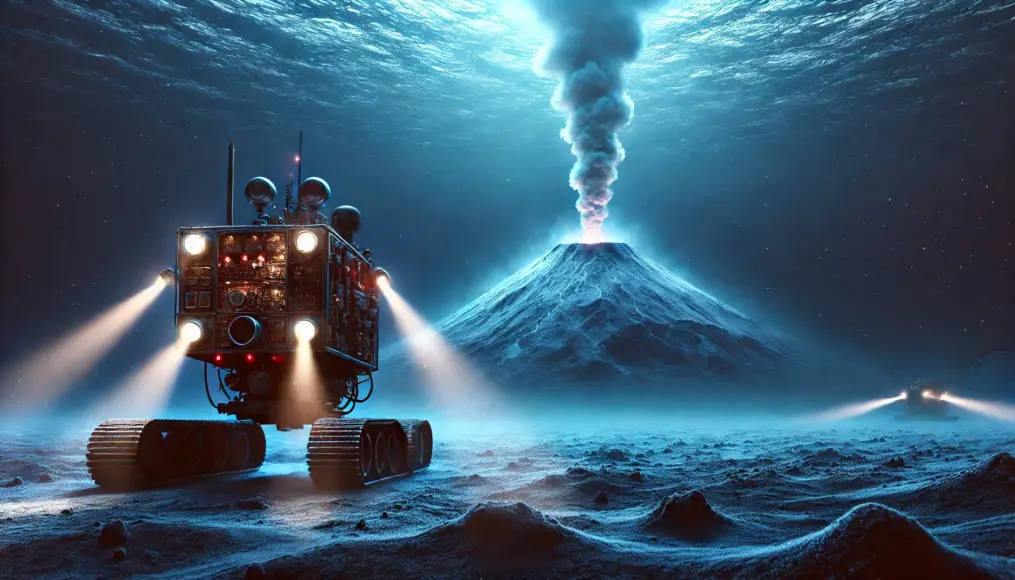
Geological Anomalies Indicated by Cold Volcanoes
Cold volcanoes surprise geologists with their appearance and function, which differ significantly from regular volcanoes.
Unlike typical volcanoes that emit magma, cold volcanoes release cold mud and methane gas instead.
This phenomenon is believed to result from unstable layers and gas accumulations within the Earth’s crust.
However, much about their formation remains a mystery that invites further exploration.
Abnormal Geological Formations and Cold Volcanoes
The locations where cold volcanoes form often display unique geological features.
These volcanoes are commonly found near plate boundaries or in deep-sea sedimentary layers.
In such layers, the relationship between pressure and temperature differs from the norm, causing unusual separation of methane gas and water.
This phenomenon may be deeply connected to the dynamic movements of the Earth’s interior.
The Role of Cold Volcanoes in Plate Boundaries
The movement of tectonic plates has a profound impact on Earth’s dynamics, and cold volcanoes could be seen as unique points of expression resulting from this activity.
For instance, regions where cold volcanoes are discovered often experience frequent seismic activity.
These observations suggest that cold volcanoes might serve as a critical key to observing Earth’s internal movements.

Methane Hydrate and Its Connection to Cold Volcanoes
Among the substances released by cold volcanoes, methane hydrate has garnered particular attention.
This substance stabilizes in cold environments and contains significant amounts of energy.
Some scientists propose that cold volcanoes might play a role in the formation of methane hydrate.
If this hypothesis holds true, cold volcanoes may hold the potential to become a future energy resource.
Environmental Impact and Potential as an Energy Resource
Methane released by cold volcanoes is known as a greenhouse gas.
While it could have a significant impact on climate change, if managed properly, it might also serve as a new energy resource.
The study of cold volcanoes may not only help us understand their environmental impact but also open up avenues for energy development aimed at Earth’s future.
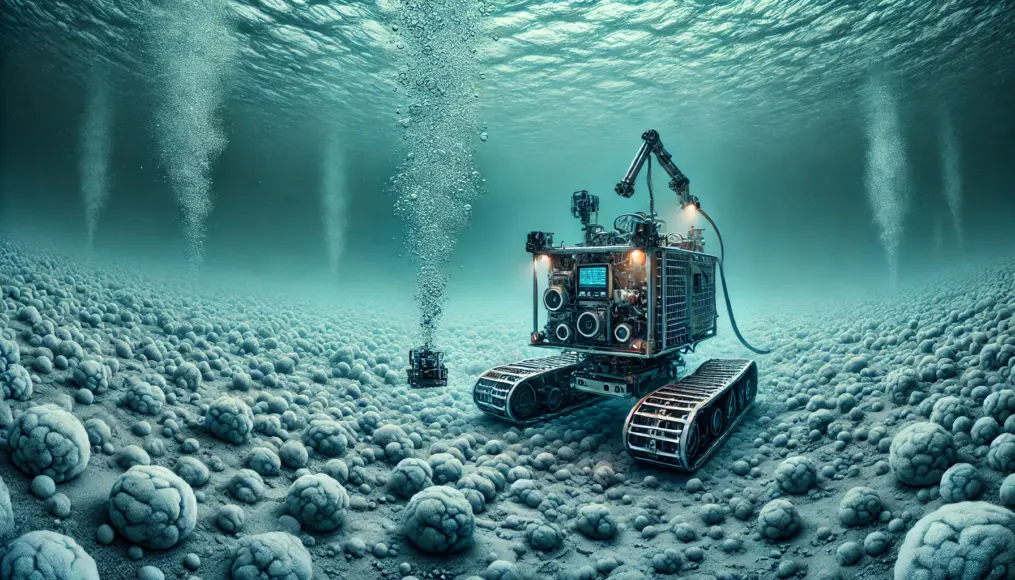
Exploring the Mysteries of Unexplained Geological Phenomena
The study of cold volcanoes extends beyond geology to influence biology and climate science.
They provide clues to understanding how life adapts in Earth’s deep environments and contribute to a broader understanding of the planet’s overall systems.
By unraveling this unexplained phenomenon, we can gain new insights into Earth’s past and future.
The Future Impact of Cold Volcanoes
Cold volcanoes are more than just geological phenomena.
Their existence expands our scientific understanding and offers new perspectives on future energy and environmental management.
The journey to unravel these mysteries hidden in the deep sea invites us to reevaluate our view of Earth itself.
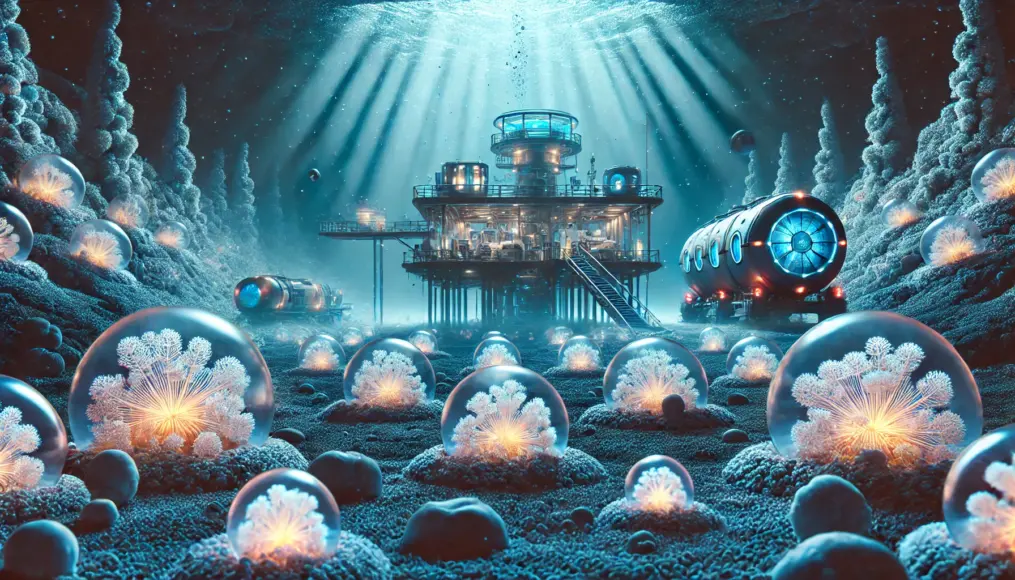
The Possibility of Phenomena Beyond Scientific Explanation
Cold volcanoes present phenomena that challenge conventional scientific understanding.
Normally, volcanic activity is associated with high temperatures, but “cold volcanoes,” as the name suggests, continue their activity without emitting heat.
This unusual property has left scientists puzzled.
As a result, cold volcanoes may hold the key to unveiling unknown processes within the Earth.
Unexplained Phenomena in the Deep Sea
Cold volcanoes are active in the extreme environment of the deep sea.
The deep sea is dominated by high pressure and low temperatures, creating conditions entirely different from those of typical volcanic activity.
In this environment, gases and chemical substances emitted from Earth’s interior appear to play a crucial role.
Considering these factors, it’s clear that understanding cold volcanoes requires a new perspective beyond traditional geology.
The Role of Unknown Substances
Cold volcanoes emit substances that may include unknown elements rising from deep within the Earth.
The chemical composition and properties of these substances are said to differ from those found in typical volcanoes.
For instance, traces of rare elements and unique microorganisms have been detected, which may contribute to volcanic activity.
If this is true, it suggests an incredible and unexplored world lies hidden deep within our planet.
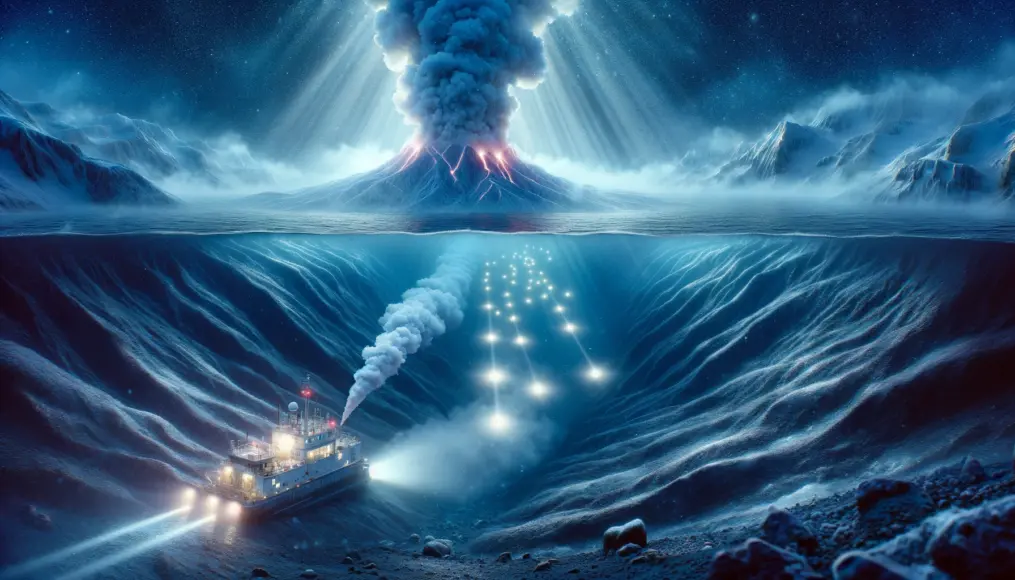
Hypotheses Beyond Science
Cold volcanoes challenge scientific understanding with their numerous unexplained phenomena.
As a result, some researchers and urban legend enthusiasts believe these volcanoes hold meanings beyond natural phenomena.
Bold hypotheses have been proposed, including influences from extraterrestrial life or remnants of ancient civilizations.
While these ideas lack scientific proof, they continue to spark curiosity and imagination.
Connection to Extraterrestrial Life
The harsh environment of the deep sea, where cold volcanoes operate, has led to theories of extraterrestrial involvement.
For example, unique chemical substances not found elsewhere on Earth are sometimes discovered alongside volcanic activity.
If these substances were brought from extraterrestrial origins, it could add a new chapter to Earth’s history.
Such discoveries prompt us to rethink the relationship between Earth and the universe.
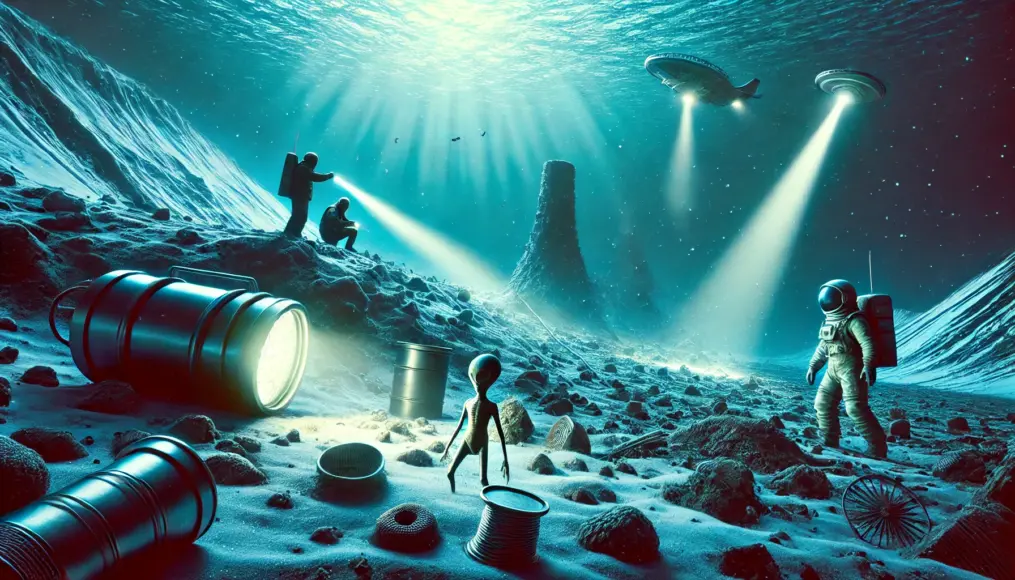
Links to Ancient Civilizations
The unusual features of cold volcanoes have led to suggestions that they may be remnants of advanced ancient technologies.
If this hypothesis holds true, ancient peoples may have harnessed forces of nature that modern science cannot yet comprehend.
This perspective suggests that cold volcanoes could signify more than just geological phenomena.
Such insights provide an opportunity to reinterpret history from an entirely new angle.
Technological Legacy of Ancient Civilizations
Artifacts and ruins discovered during deep-sea exploration have hinted at connections between cold volcanoes and ancient civilizations.
These findings suggest Earth’s history is far more complex than previously believed.
The activity of cold volcanoes may relate to the technological knowledge or energy sources of ancient civilizations.
If true, we may be witnessing the remnants of astonishing civilizations that once existed.
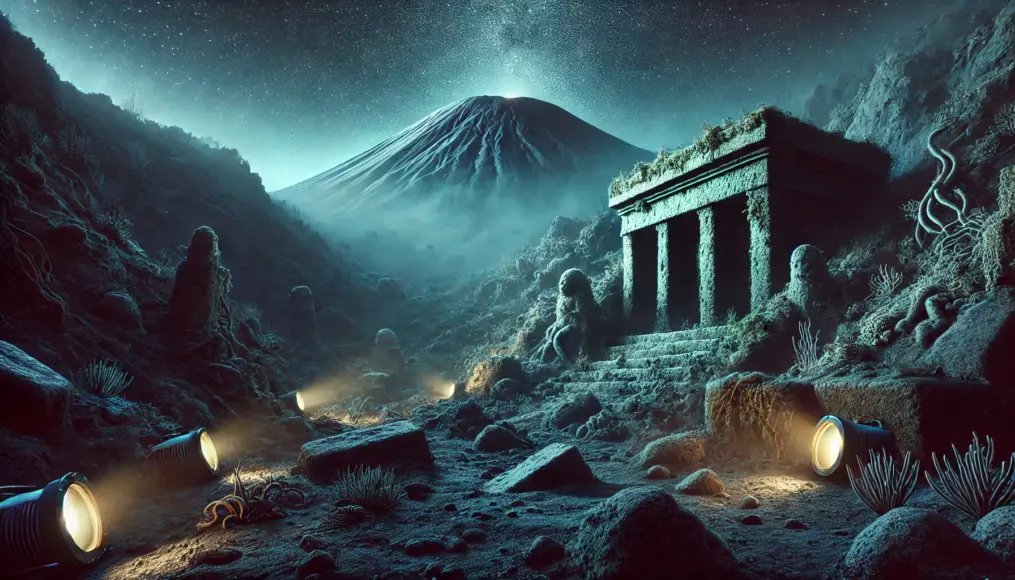
What Cold Volcanoes Teach About Earth’s Future
What insights can we gain about Earth’s future from the phenomenon of cold volcanoes?
These occurrences may represent a dynamic process happening within the Earth.
Understanding their mechanisms might reveal new perspectives on Earth’s future and potential responses to environmental changes.
Scientists are striving to uncover this mystery to explore sustainable options for humanity.
Connection to Global Warming
Exploring how cold volcanoes relate to global warming is a key area of study.
The chemical substances released by cold volcanoes have largely unknown effects on the climate.
Some studies suggest that these materials might mitigate Earth’s warming to some extent.
If proven, the existence of cold volcanoes could indicate a new approach to environmental conservation.
Impact of Substances Released by Deep-Sea Cold Volcanoes
The impact of chemical substances released by cold volcanoes on deep-sea ecosystems is a fascinating topic.
These materials might influence the evolution of marine life and the patterns of ocean currents.
Scientists are also investigating whether these substances could contribute to climate change.
Such research may hold the key to global environmental conservation efforts.
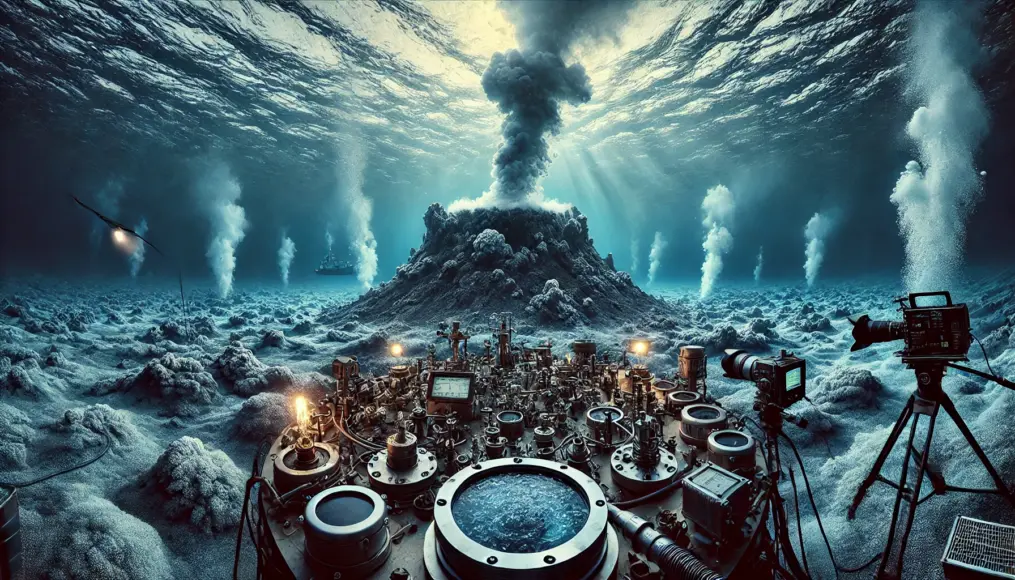
Potential as a New Energy Source
The existence of cold volcanoes hints at their potential as energy resources.
Chemical reactions and heat energy within these volcanoes could be harnessed for renewable energy.
If successful, this could provide hope for regions with limited energy resources.
Researchers are working toward sustainable energy development using cold volcanoes.
Feasibility of Harvesting Heat Energy from Cold Volcanoes
Studies are exploring how to efficiently capture the faint heat energy generated inside cold volcanoes.
If this process can be optimized, it may become a source of environmentally friendly energy.
This breakthrough could address global warming and energy challenges.
The study of cold volcanoes may spark an energy revolution in the future.
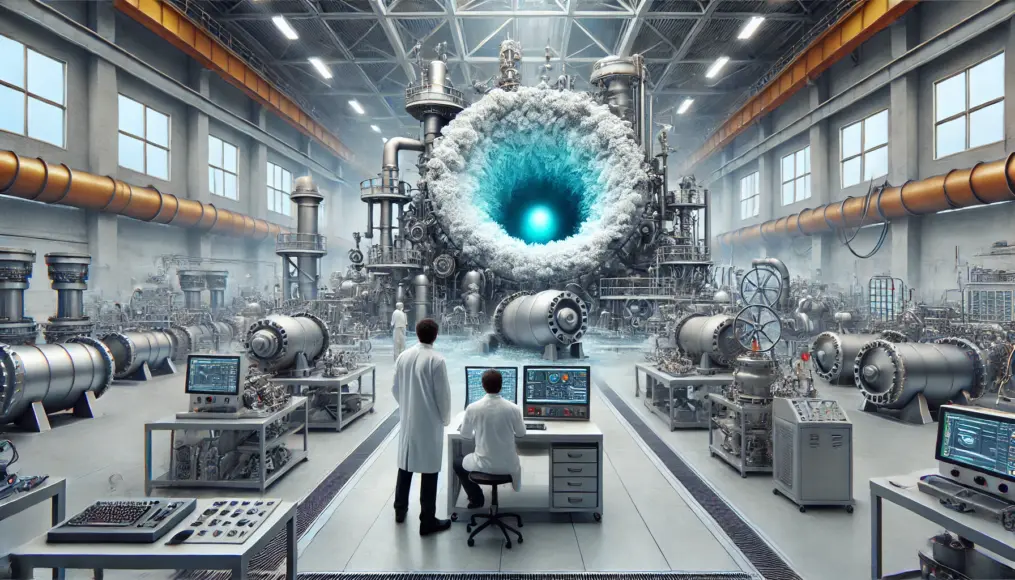
Keys to Shaping Earth’s Future
The role of cold volcanoes in shaping Earth’s future is a subject of great interest.
Deciphering their mysteries could lead to a deeper understanding of Earth’s internal dynamics and environmental changes.
Cold volcanoes might open doors to understanding unknown natural phenomena.
Considering this phenomenon from a global perspective is crucial for scientific exploration.
A New Perspective from Cold Volcanoes
Research on cold volcanoes provides fresh insights into Earth’s environment and climate change.
This understanding could enhance our knowledge of global natural phenomena.
The findings may also contribute to space exploration and studies of other planets.
Through this phenomenon, we might learn how to protect the Earth more effectively in the future.

Summary
The mysterious “cold volcanoes” discovered in the deep sea may hold the key to uncovering the secrets buried within Earth’s depths.
Unlike typical volcanic activity, these phenomena offer new perspectives on Earth’s evolution and unknown natural processes.
The message this discovery conveys is one of awe and excitement, transcending the boundaries of modern science.
How will the information provided by these cold volcanoes shape our vision of Earth’s future?
Feel free to share your thoughts in the comments below!

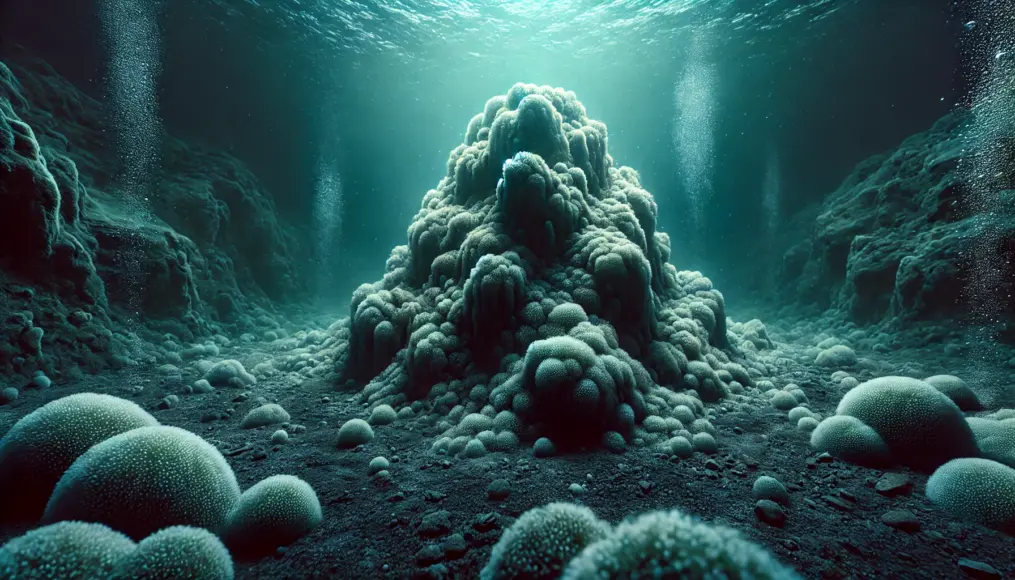


Comment